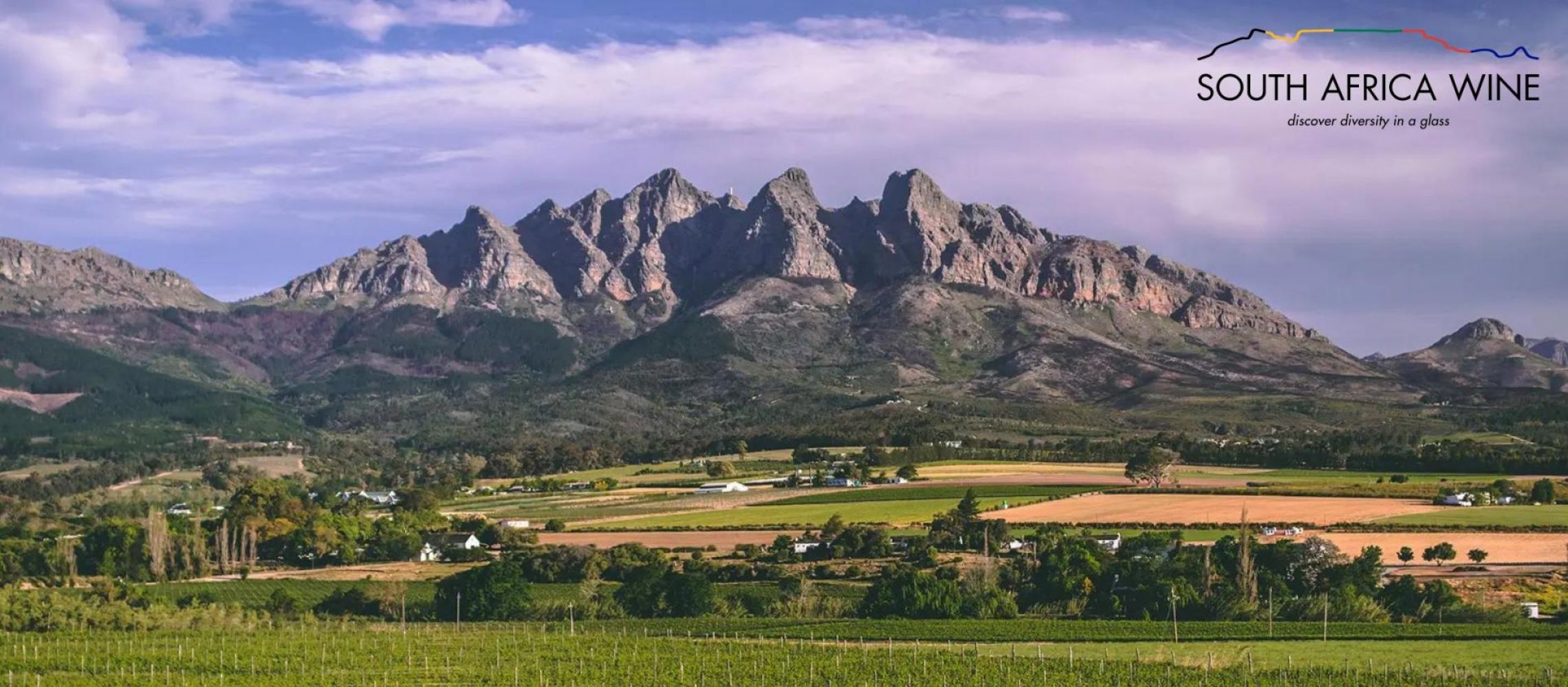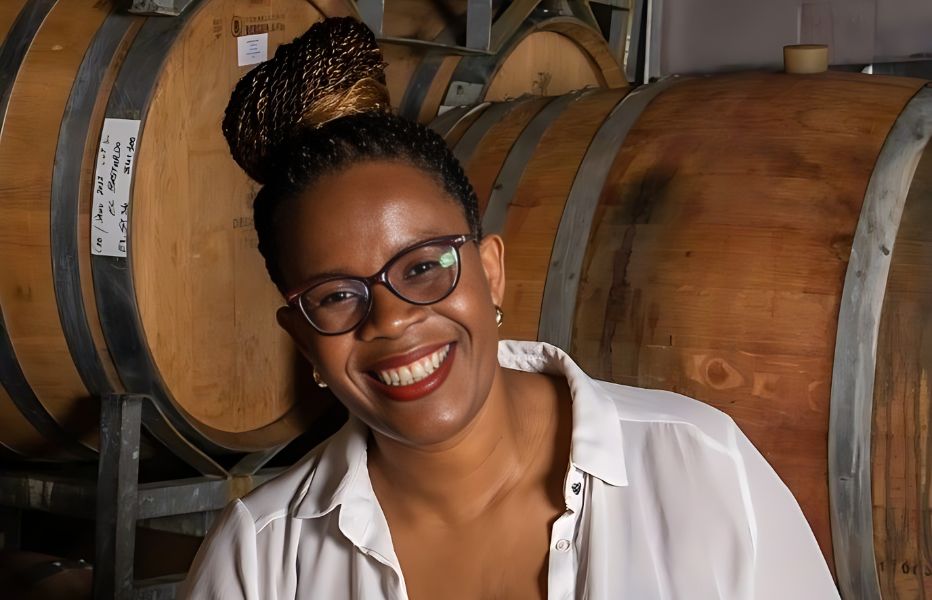Super Early Deadline
31 August 2025
Judging
Date
23 & 24 March 2026
Winners Announcement
22 April 2026
31 August 2025
23 & 24 March 2026
22 April 2026

The South African wine industry has experienced its fair share of challenges. The winemaking history traces back 360 years but was dominated by large cooperatives and white-owned companies. It was largely cut off from the U.S. and world markets by apartheid-related embargos in the late 20th century. In 2017, a representative of Wines of South Africa could still state that “for most Americans, South African wine is a bit of a blank slate.” The Covid pandemic caused further uncertainty owing to alcohol bans and the government-ordered cessation of all wine exports.
Wanda Augustyn, communications manager with South Africa Wine, kindly answered my questions about the current state of the industry. South Africa Wine is a new umbrella organization founded in 2023. Part one of the interview concerns current conditions, particularly the growing success story of Black South African's rapidly increasing involvement in winemaking and the on-trade. Part two concerns the challenges, many of them unique to South Africa, and how South Africa Wine will help steer the industry to future growth.

Image: Wanda Augustyn, source: LinkedIn
I first asked Wanda about the state of the industry since 2000.
“Since the turn of the millennium, South Africa's wine industry has undergone significant changes, experiencing challenges and opportunities that have shaped its history and current state.
“At the beginning of the 21st century, South Africa's wine industry transitioned from isolation during apartheid to a more globally connected and competitive market. The sector faced challenges such as outdated infrastructure, overproduction, and low-quality perceptions of South African wines in international markets. However, this period also saw efforts to modernize vineyard practices, improve winemaking techniques, and establish sustainability initiatives.
“During the early to mid-2000s, South African wines began to gain recognition on the global stage, with increased exports to crucial markets such as the United States, the United Kingdom, and Europe. Wineries focused on improving quality, experimenting with new grape varieties, and investing in state-of-the-art facilities. The industry also embraced sustainable practices, with initiatives such as the Biodiversity & Wine Initiative (BWI) aiming to protect natural habitats and promote conservation.”
Wanda continued, focusing on sustainability and where the industry is today.
“In the past decade, South Africa's wine industry has continued to evolve, embracing innovation, diversity, and sustainability. Winemakers have experimented with new grape varieties and wine styles, reflecting the country's rich terroir and diverse microclimates. Indigenous grape varieties such as Chenin Blanc and Pinotage have gained prominence, showcasing South Africa's unique winemaking heritage.
“Sustainability has become a key focus for the South African wine industry, with initiatives such as the Integrated Production of Wine (IPW) scheme promoting environmentally responsible vineyard management and winemaking practices. The sector has also prioritized social responsibility, addressing worker welfare and community development through initiatives such as the Wine Industry Ethical Trade Association (WIETA).
“Today, South Africa's wine industry is recognized as a dynamic and innovative player on the global wine stage. Its wines regularly receive international acclaim and awards, showcasing the country's diversity, quality, and terroir-driven expressions. With a focus on sustainability, inclusivity, and excellence, the South African wine industry is poised for continued growth and success in the years to come.”
I then asked Wanda about South Africa Wine, the new organization.
“Established on 1 July 2023, South Africa Wine is the guiding hand behind the scenes, orchestrating industry success and fostering growth from grape to glass,” she said.
South Africa Wine represents “wine grape producers, cellars, wine-related businesses, and wholesalers. We provide essential support services to the wine and brandy value chain, demonstrating a commitment to fostering growth and success within the industry.
Wanda continued: “We aim to achieve four strategic objectives within the wine sector: transformation and responsibility, nurturing a loyal and expanding local market base, establishing a solid presence in the global market, and making sustainability a core principle in all endeavors.”
The goals of the organization are ambitious. “We are dedicated to amplifying voices, shaping narratives, igniting curiosity, innovating possibilities, and nurturing talent to cultivate an inclusive and dynamic South African wine landscape.”
- Advocacy with government, socioeconomic, legislative, and trade;
- Communications and information transfer;
- Research, development, and innovation, including advancing viticulture and oenology, fostering sustainable growth and knowledge transfer;
- Transformation and development with enterprise development, people and skills development, and our industry transformation advisory;
- Consumer and market focus with market access, domestic market, export market, brandy, and tourism.
I then asked about the apparent upward trend in the number of Black-owned brands and wineries. as well as any related challenges. Wanda referred me to Karin Kleinbooi, Executive Manager of Transformation & Development at South African Wine. If only all wine trade organizations had departments dedicated to transformation.

Image: Karin Kleinbooi; Source: Food for Mzansi
Karin said; “The rise of Black-owned brands and wine grape producers in South Africa's wine industry signifies progress towards diversity and transformation in a historically white-dominated sector. However, challenges persist due to historical legacies, economic disparities, and struggles for equitable representation. Despite these challenges, initiatives like grant funding and mentorship programs support Black businesses, fostering inclusivity. South Africa Wine aims to address these challenges by supporting Black-owned wine farms and entrepreneurs. While progress has been made, efforts must continue to dismantle systemic disparities and promote diversity and inclusion in the wine industry. Addressing these challenges will unlock the full potential of Black-owned businesses and contribute to a more inclusive and diverse wine industry.”
Wanda and Karin then provided specific examples of increased Black involvement in the wine industry.
Carmen Stevens is an inspiring example of perseverance and resilience in the South African wine industry. Born and raised in the Western Cape's wine-producing region, Stevens faced numerous obstacles as a Black woman entering a predominantly white-owned and male-dominated field. Undeterred by skepticism and discrimination, she pursued her passion for winemaking, aiming to create opportunities for herself and future generations of Black entrepreneurs.
With unwavering determination, Stevens triumphed over adversity, establishing Carmen Stevens Wines and becoming one of the first Black women to own and operate a winery in South Africa. Her commitment to excellence, innovation, and social responsibility garnered widespread recognition, paving the way for greater diversity and representation in the country's wine industry.
Another compelling story of resilience is that of Klein Goederust. In 2019, the Siguqa family acquired this farm, embarking on their winemaking journey inspired by family matriarch Nomaroma Siguqa, a lifelong Cape wine farm laborer. Paul Siguqa's achievements in one of the richest wine regions in South Africa exemplify the transformative potential of Black entrepreneurship in the industry.
Similarly, Seven Sisters Wines, founded by Vivian Kleynhans in the Western Cape province, exemplifies determination and resilience. Originating from poverty and limited opportunities, the seven Brutus sisters defied the odds to establish their winery, drawing upon their collective strength and sisterhood to navigate the industry's challenges. Through their dedication and perseverance, Seven Sisters Wines gained recognition for its distinctive wines and commitment to social upliftment, impacting the Brutus family and the broader community through job creation and economic empowerment initiatives.

Image: Ntsiki Biyela, the first Black female winemaker in South Africa; Source: LinkedIn
Furthermore, notable winemakers like Ntsiki Biyela and Koni Mahiele have contributed significantly to South Africa's wine industry. Biyela, the first Black female winemaker in South Africa, launched her tasting facility and gained international acclaim for her work with Stellenkaya Wines before establishing her brand, Aslina Wines. Mahiele has also received recognition and awards for her contributions to the industry.
Integrating the contributions of young, innovative winemakers adds depth to the narrative of transformation within the industry. With her Lelie van Saron label, Natasha Williams embodies this spirit of entrepreneurship, drawing inspiration from her heritage to carve out her place in the industry. HER Wines, championed by the Adama initiative, empowers Black women in winemaking, reshaping the narrative, and breaking barriers. Lucmo Wines, led by a young and ambitious team, represents a fusion of tradition and innovation, challenging conventions and pushing boundaries.
In addition to these trailblazers, Francis Wines, Brothers in Vine Wines, and Zoetendal contribute their unique perspectives and innovations to the evolving landscape of South Africa's wine industry. These young and dynamic ventures epitomize the spirit of entrepreneurship and innovation, embodying the transformative agenda that is reshaping the industry.
Francis Wines, led by a young, passionate, and visionary individual, seeks to redefine the traditional notions of winemaking. Carefully crafting his wine-making skills both internationally and locally, Burton Francis embodies a commitment to sustainable practices and a focus on terroir-driven wines. This brand, Francis Wines, also represents a fresh approach to winemaking that resonates with modern consumers while honoring the rich heritage of South African viticulture.
Similarly, Brothers in Vine Wines is driven by a shared passion for winemaking and a commitment to excellence. Founded by a group of close-knit siblings, this innovative venture combines traditional craftsmanship with a contemporary flair, producing wines that reflect their unique blend of creativity and expertise. Brothers in Vine Wines is carving out a distinct identity in the competitive wine market through their dedication to quality and authenticity.
Denzel Swarts catalyzes transformation at Zoetendal Vineyards, epitomizing a profound commitment to craftsmanship and meticulous attention to detail. As a master winemaker, Swarts imbues each bottle with a deep reverence for the land, elevating the essence of the Western Cape region into expressions of unparalleled quality. His unwavering dedication to sustainability and environmental stewardship propels Zoetendal into the vanguard of the wine industry, pioneering eco-friendly practices and ethical winemaking standards. In essence, Swarts drives Zoetendal's evolution towards excellence, shaping its identity as a trailblazer in quality, sustainability, and innovation within South Africa's wine landscape.
Together, these young and innovative winemakers contribute to the vibrant tapestry of South Africa's wine industry, enriching the narrative of transformation and diversity. By challenging conventions, pushing boundaries, and embracing the spirit of entrepreneurship, they are reshaping the future of winemaking in South Africa and beyond.
Wanda and Karin pointed out that Black participation in the South African wine industry is not limited to producers.
They noted that the “industry has also seen a notable shift in the rise of black sommeliers, amplifying diversity and representation in an area traditionally lacking such voices. These sommeliers bring a wealth of knowledge and expertise and serve as powerful advocates for Black-owned brands and winemakers, reshaping the narrative of South Africa's wine culture.”

Image: (L-R), Tinashe Nyamudoka and Luvo Ntezo; Source: LinkedIn
Among these notable sommeliers is Tinashe Nyamudoka, whose journey from Zimbabwe to becoming one of South Africa's leading sommeliers symbolizes the spirit of perseverance and excellence. Nyamudoka's passion for wine and dedication to his craft have earned him recognition and accolades, inspiring a new generation of Black wine professionals.
Similarly, Luvo Ntezo has made significant strides in the wine industry, breaking barriers and challenging stereotypes as a Black sommelier. Ntezo's expertise and advocacy efforts have helped raise awareness about Black-owned brands and wineries, fostering a more inclusive and equitable wine landscape in South Africa.
In addition, Joseph Dhafana's remarkable ascent in the wine world showcases the talent and potential of Black sommeliers in South Africa. Dhafana's journey from a humble background in Zimbabwe to becoming a sought-after sommelier and wine educator highlights the transformative power of passion, determination, and opportunity.
These Black wine sommeliers and others like them drive positive change and promote diversity within the wine industry. Their presence not only adds depth and richness to the wine culture but also catalyzes broader societal transformation, dismantling barriers and creating pathways for future generations of Black wine professionals. In conjunction with the rise of Black-owned brands and wine grape producers, the emergence of Black wine sommeliers signals a fundamental shift towards inclusivity and representation within South Africa's wine industry.
Despite the strides made by Black-owned farms and brands, significant challenges persist, including limited access to capital, land reform issues, and unequal market access. South Africa Wine aims to address these challenges by supporting and elevating black-owned wine farms, Black winemakers, entrepreneurs, and professionals in the industry.
Part two of this series will examine current hurdles for the wine industry in detail.
Make your wines stand out on the world stage. Enter the London Wine Competition by August 31 to secure Super Early Bird savings.